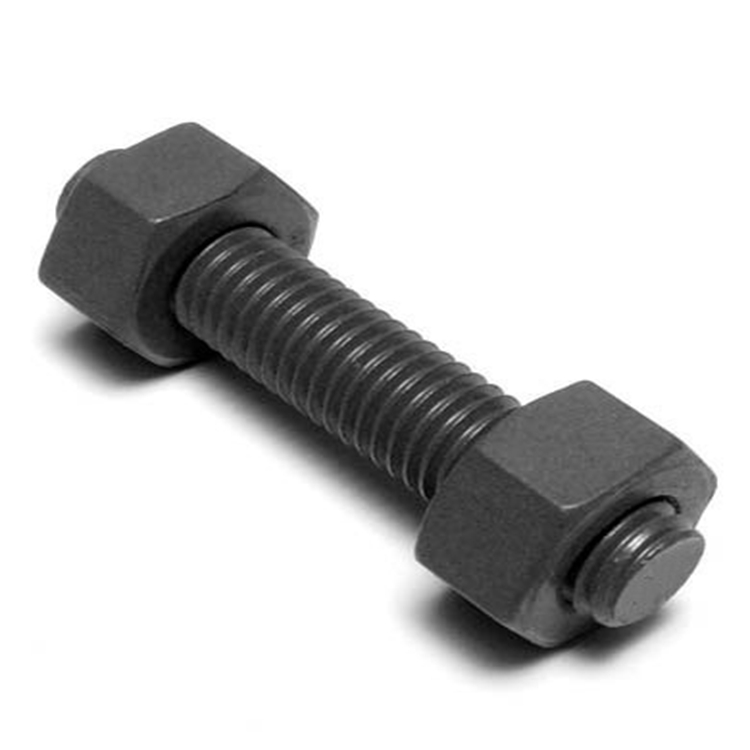OEM Specification for 201 202 Bolt Components and Their Applications in Industry
Desemba . 06, 2024 05:30 Back to list
OEM Specification for 201 202 Bolt Components and Their Applications in Industry
Understanding OEM 201 202 Bolts Quality, Applications, and Considerations
When it comes to manufacturing and engineering, the choice of materials and components can significantly impact the performance and reliability of a product. One of the key components often overlooked in design and production is bolts. Among the various types used, the OEM 201 and 202 bolts stand out due to their specific properties and applications. This article delves into the characteristics, applications, and considerations when selecting OEM 201 and 202 bolts.
What are OEM 201 and 202 Bolts?
OEM stands for Original Equipment Manufacturer, which implies that these bolts are produced in accordance with specific standards set by the automotive or manufacturing industry. The designation 201 and 202 typically relates to the type of material and alloy composition used in the bolts.
OEM 201 bolts are often made from austenitic stainless steel, which provides good corrosion resistance and is known for its strength and durability. They offer great performance in environments that are exposed to moisture, chemicals, and other harsh conditions.
OEM 202 bolts, on the other hand, represent a variation in the alloy composition that may include different levels of chromium and nickel, thereby affecting their mechanical properties and resistance to corrosion. These bolts are also austenitic but may be used in applications requiring slightly different attributes in strength or resistance.
Applications of OEM 201 and 202 Bolts
OEM 201 and 202 bolts are widely used across various industries, including automotive, aerospace, construction, and machinery production. Their ability to withstand high temperatures and pressure makes them suitable for critical applications where safety and reliability are paramount.
1. Automotive Industry In manufacturing vehicles, these bolts are used for fastening different components like engine parts, exhaust systems, and chassis. Their corrosion resistance is particularly valuable in automotive applications where exposure to the elements is commonplace.
2. Aerospace The aerospace sector relies heavily on high-strength and lightweight materials. OEM 201 and 202 bolts fit the bill perfectly, ensuring safety and reliability during flight.
3. Manufacturing Machinery Industrial machines require sturdy fasteners that can endure constant mechanical stress. The durability of OEM 201 and 202 bolts makes them ideal for such environments.
oem 1 2 bolts

4. Construction These bolts are also utilized in construction applications, whether in securing structural beams or fastening various outdoor installations where resistance to weathering is required.
Considerations When Choosing OEM 201 and 202 Bolts
When selecting OEM 201 and 202 bolts for specific applications, several factors need to be considered to ensure optimal performance and longevity.
1. Corrosion Resistance Determine the environmental conditions. If the bolts will be exposed to moisture, harsh chemicals, or saltwater, then selecting the right alloy (like OEM 201 or 202) that offers higher corrosion resistance is crucial.
2. Strength and Load Requirements It's essential to analyze the load-bearing requirements of your application. High-strength bolts should be chosen for heavy-duty applications to prevent failure.
3. Temperature Tolerance Different alloys can withstand varying maximum temperatures. Ensure that the bolts chosen can handle the operational temperatures of the environment they are in.
4. Compatibility Ensure that the bolts are compatible with other materials they will be working with. This prevents issues like galvanic corrosion, which can arise when dissimilar metals are in contact.
5. Standards and Specifications Always check if the bolts meet relevant industry standards and specifications. Using high-quality OEM bolts guarantees that they are durable and reliable for your specific needs.
Conclusion
OEM 201 and 202 bolts are vital components in many industries due to their unique properties and applications. By understanding their characteristics and implementing diligent selection practices, manufacturers can ensure the reliability and safety of their products. Ultimately, the right choice of bolts can be the difference between a successful project and costly failures, highlighting the importance of this often-overlooked aspect of engineering and manufacturing. When in doubt, consulting with a materials expert or a trusted supplier can provide valuable insights and guidance for optimal bolt selection.
Latest news
-
Premium Cabinet Bolts Supplier | Wholesale & Custom Solutions
NewsAug.24,2025
-
Reliable Axle Nuts Supplier | Quality & Precision Fasteners
NewsAug.23,2025
-
Durable Bolts for Lawn Mower Handle - Top Supplier & Manufacturer
NewsAug.22,2025
-
High-Quality Bolts for Lawn Mower Handle Supplier & Manufacturer
NewsAug.21,2025
-
Reliable Axle Nuts Supplier | High-Quality Automotive Parts
NewsAug.19,2025
-
Premium Wire Bolts Suppliers | Durable & Reliable Fasteners
NewsAug.18,2025
